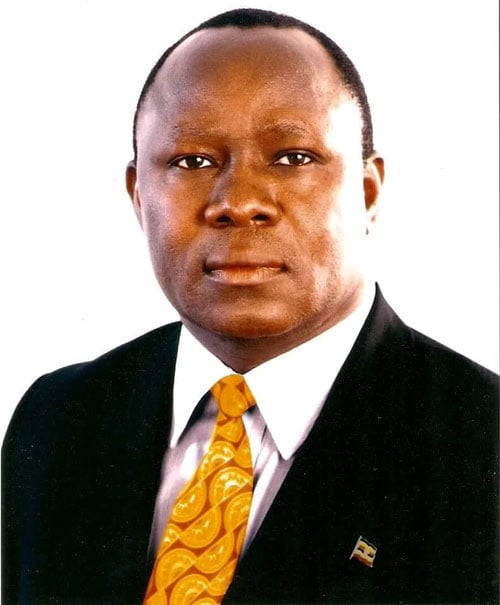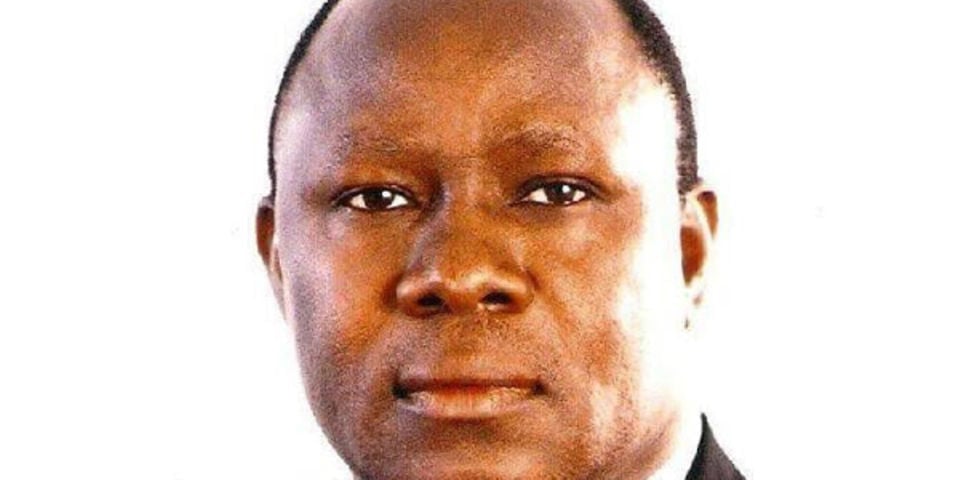Prime
Ringa: Man who dreamt of being a ‘citypreneur’

Patrick Aloysious Okumu Ringa
What you need to know:
- In the early 1980s, Okumu Ringa not only single-handedly ran the transport industry business in Nebbi, he also had fingers in other businesses, including construction, education, hotel and tourism. But everything came crashing down so fast.
Patrick Aloysious Okumu Ringa was a man ahead of his time. The former junior Public Service minister and Padyere County lawmaker wanted to build a city, or at the very least, set a benchmark upon which Nebbi Town would grow into a city.
Such a ‘citypreneurship’ idea was a first on many fronts. Not that he was self-seeking for Ringa, West Nile’s most famous entrepreneur, actually laid the foundation of such a venture.
In 1986, Ringa completed Rajja Deluxe, a four-storey complex that provided ample space for entertainment. Sitting at the heart of present-day Nebbi Municipality, Rajja Deluxe was the ‘Gurofa pa Ringa’ (Ringa’s storey building) and played the GPS landmark back in the days.
Travellers approaching Nebbi Town would know of their arrival at the sighting of the lights on Gurofa pa Ringa from 8km away at Agwok Trading Centre.
There was the estate at Namrwodho, a few kilometres to Nebbi Town on the Pakwach-Nebbi highway, designed for office spaces; Nebbi Pentagon for arcades; Aroma Tea; Ringa Construction and Engineering Works; Ringa Transport Service; Pattex Garment Industry; Ombidi and Nyaceng Memorial Hospital; and Orbital Tours and Travel, among others.
These were novel ventures that would uplift the livelihood of the Alur community. Ringa set his grandiose dream in motion at a time the Museveni government was working overtime to sweep aside elements they suspected to have ties to Milton Obote’s Uganda Peoples Congress.
On February 28, 1987, President Museveni arrived in Nebbi and officially launched Ringa’s Rajja Deluxe. He stopped by Ringa’s family home on Jukia Hill—a summit view of sorts from where one could take in a sweeping outlook of the panorama of Nebbi Town.
“Getting Museveni, who was still so popular, to launch your business and even stop-by your home, that was supposed to take Patrick’s vision beyond the foundations he was laying,” said a former local leader Sunday Monitor met in Thatha Division in Nebbi Municipality during Ringa’s funeral on May 26.
“But the painful irony is that it was Museveni’s government that crippled everything Patrick was working to achieve,” added the middle-aged man who spoke on condition of anonymity.
Rollercoaster rise
It might not have been a silver spoon that Patricio Ocam Ringa and Veronica Nyaceng gave their baby that September 12, 1951, in Parombo Sub-county, but it wasn’t a wooden spoon either.
Patricio was a successful businessman in Zeu Village in Erussi Sub-county, whose 10 children were guaranteed a future. From attending Parombo Catholic School for his primary, Ringa was sent to Kololo SS in Kampala for his O-Level before crossing the Atlantic to Ohio, US.
He would later study business administration from Western Academic University in the US.
Ringa returned with business astuteness that rivalled the expertness.
He made the most of anything. From kibandas (video shacks) where locals would watch two-day old African Cup of Nations and World Cup matches during tournaments—because there was no access to live broadcasts—to transport, there was Ringa.
In the early 1980s, he single-handedly ran the transport industry business in Nebbi. Ringa had a fleet of lorries and buses, plying public routes. He also had boats connecting Panyimur and Wenseko landing sites in Buliisa.
From Jukia Hill, Ringa took in the scenic views of Nebbi Municipality and had his big dream. Part of the vast hill is dotted with foundations of what looks like planned mega structures.
They remain under grass, even those whose walls had been raised are weathered by the desolation over time. These, and many others, are birthmarks of the stillbirth of Ringa’s citypreneurship.
Ringa’s Afro-Motors was the sole distributor of French auto, Peugeot, in East Africa. Ringa drove a sleek Peugeot 505. He lived in a mansion on Acacia Avenue in Kololo, the same one that now houses Kabojja Junior School. From that home, Ringa operated an open-door policy as he promoted the Alur community.
The impact of this promotion was felt far and wide in the country. In Jinja, where West Nilers were widely recruited for labour in Kakira sugar plantation, this Ringa effect saw the Alur culture waft in the air.
Circa 93, the Agwara dance conquered Jinja Town as the Alur topped an inter-tribe dance expo. This was the height of their unity, their pride. And Ringa, who was fanning all this Alur cultural pride, had been lured into politics.
He started as an LC1 chairman, then moved on to serve on the Nebbi Town Council, the district council in 1992, where he held the position of the secretary for education before he was shipped to Kampala.
Patrick Oyulu, a former public relations officer, who was then chairman of the Nebbi Makerere University Students Association (Nemsa), would meet with Ringa many times.
“He supported Nemsa and the education of many Alur students. He would throw parties at his home and host graduating students who couldn’t afford a celebration,” recalls Oyulu.
Downfall
But everything came crashing down so fast as if it had been planned with precision. Oyulu recalls the turnaround as the home they were entertained in had suddenly been taken over.
“They threw him out. I was called by members of his family and I was at the scene. It was a sad, rainy day, with all his belongings out on the roadside,” Oyulu says.
Dealing in Peugeot import was lucrative given the government market at the time. With the government backing and being the sole dealer, there appeared a façade of guarantee.
So when the government came calling, Ringa dived into the deep end of the financial pool to finance the obvious lucrative deal.
It was while the consignment of 80 Peugeot vehicles and spare parts had reached the Kenyan port of Mombasa that the government terminated the agreement and opted to procure Japanese autos.
Things fell apart fast and with humiliation. The Kampala house was grabbed to recover bank loans as Ringa scoured every nook and cranny to salvage his losses.
“Most of the projects he started in earnest in the early 90s stalled. The huge housing project as you enter Nebbi Municipality, Nebbi Pentagon, and many others ... Even his house on Jukia Hill started getting run down,” says Mr Oyulu.
The estate at Namrwodho that was meant to be for office rentals could not be completed. A nursery school was established at the facility. It too did not last long. Overgrown grass runs the facility today.
“He didn’t fail as a businessman. He was deliberately frustrated by the very people and government that he trusted, simply because he was way ahead of his time,” says a member of the Ringa family in confidence.
Mr Geoffrey Thorwinyowa, a councillor in Nebbi, says the government still owes the Ringa family part of the compensation for the botched Peugeot deal.
President Museveni is understood to have paid up to Shs900m to Ringa in installments. But the citypreneurship dream has long been dead – it was buried with its dreamer at Jukia Hill on May 26. Jukia Hill is synonymous with two things: an embarrassingly bad road connecting West Nile to DR Congo via Goli, and the late Ringa. He owned the entire swathe of the hill.
On May 26, undertakers wheeled a coffin from the main house. Ringa was leaving his home for the final time. The son of Zeu had seen so much that he wanted to achieve from this ‘summit view’ and now he was being seen off.
In death, Ringa had many regrets and the state of that road must have probed like a bad tooth. If he had achieved his dream, that road would probably be a pristine tarmac.
Standing in an expansive verandah, one could see the entire Nebbi Municipality. Here, Ringa had stood many times, showed his guests around and shared with them his vision for what was then Nebbi Town.
There was Congolese rumba legend Tabu Ley Rochereau whom he had flown in for a concert in 1993. A picture of Tabu Ley posing with Ringa tells the story of this hill.
Then there was President Museveni in February 1987. And then they were only grey memories. Like his political message.
“Our people are not appreciative. All I wanted from them was votes. I’ve educated so many children, but all they tell me is I’ve done nothing,” Ringa lamented after his election loss in 2018.





